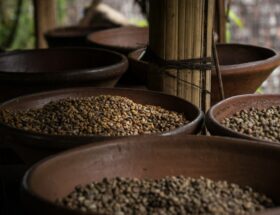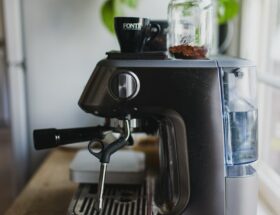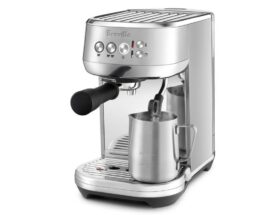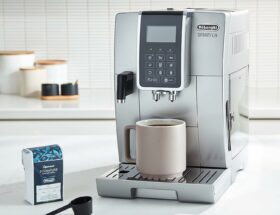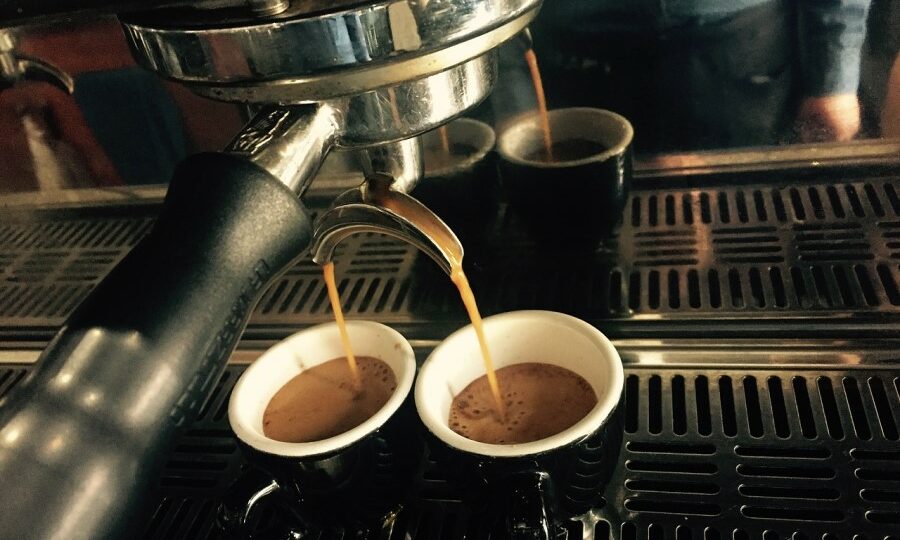
9 Reasons Your Coffee Is Bitter & How to Fix it
Welcome, fellow coffee connoisseurs! Today, we’re here to tackle a common problem that can tarnish a perfect morning – bitterness in your coffee. We all crave that ideal cup—a harmonious blend of robust, rich flavor, vibrant aroma, and just the right hint of sweetness. However, more often than not, an unwelcomed bitterness crashes the party, leaving our taste buds in dismay.
Table of Contents
Here is my top reason why coffee is bitter
- Over-extraction
- The Dark Roast
- Quality of Beans
- The Grind
- Bonafide Brew Ratios
- Bean Care
- Temperature
- Equipment Cleanliness
- Brewing Method
So, what’s dictating this harsh reality? Is it the innocent-looking coffee bean? Or is it the brewing method to blame? Perhaps the tools we use? Well, it’s time to don the detective cap and debunk this bitter mystery once and for all.
In our pursuit for the perfect brew, we have brewed, tasted, and tested to unveil the nine often unnoticed culprits behind a bitter cup of coffee. But we won’t just leave you there. We will guide you through easy yet effective fixes that will forever banish bitterness from your brew. Let’s get started on our journey to reclaim the joy of a beautifully balanced cup of coffee.
1. Over-extraction
Just as a teabag left steeping for too long ruins your perfect cuppa, over-extraction is the arch-nemesis of a pleasant coffee experience. Over-extraction occurs when your hot water and coffee grounds mingle too long, leaching out the undesirable, bitter components.
The remedy is straightforward – control your brew time. Much like each coffee bean type is unique, so is the optimal brewing time for it.
For instance, if you’re a French press aficionado, aim to plunge at around the 4 to 5-minute mark to avoid over-extraction. In the case of the AeroPress, the creator, Alan Adler, himself suggests a swift and sweet brew time of about 2 minutes.
Remember, every extra second your water spends steeping in the bean lands can affect the final flavor of your brew. So, keep a mindful eye on your brewing time to keep the bitter notes at bay.
2. The Dark Roast
Dark roast beans can make your coffee bitter. You could consider opting for medium or light roasts instead. For example, try single-origin beans from regions like Ethiopia or Costa Rica, which are known for their light, fruity flavors.
If the villain behind your bitter coffee is the dark roast beans, fear not – an easy fix is at hand. Dark roasts are commonly associated with a heightened bitterness, largely due to the prolonged roasting process which can cause the sugars within to caramelize and burn, often resulting in a bitter aftertaste.
Consider embracing a change of scene and exploring the world of medium or light roast beans. These roasts are often less bitter, retain more of the bean’s natural flavors, and offer a smoother drinking experience.
Think Single-Origin. Say, for instance, beans from the high-altitude regions of Ethiopia, revered for their light roast and unique, fruity flavors. Or the beans grown in the fertile terrains of Costa Rica, renowned for their immaculate aroma and light, caffeine-packed roast.
Every coffee-growing region imparts its distinct notes to the beans. So, indulge in this aromatic world tour from the comfort of your own kitchen and discover your personal flavor palette. Who knows, you might be surprised at how much you love these lighter, less bitter, roasts.
3. Quality of Beans
Substandard beans are a highway to bitter town. Instead, choose high-quality, Arabica beans which are known for their lower bitterness. Local roasters tend to prioritize quality and freshness.
Not all coffee beans are created equal. Substandard beans can significantly impact the taste of your coffee, often leading to a bitter brew. Lower quality beans can contain impurities, be overripe, underripe, or even begin to spoil — all of which spells disaster for your cup of joe!
If you want to avoid the bitter taste, choosing high-quality, Arabica beans is a good way to go. Arabica beans have a wide range of flavors and tend to be less bitter than their Robusta counterparts. Good quality Arabica beans have a superb balance of sweetness, acidity, and flavor that can really shine through in your coffee.
Moreover, support your local roasters! They often source high-quality beans and prioritize freshness. Freshly roasted and high-quality coffee beans have a lot more flavor, and you’ll be able to enjoy the coffee as the roaster intended. Remember to also check roast dates, since old beans tend to lose flavor and can become bitter.
In essence, think of your coffee beans as the foundation of your coffee house. With a strong, high-quality foundation, you’re sure to build a fabulous, flavorful brew, free from the shadow of bitterness. So relish the taste of quality in every sip!
4. The Grind
Too fine a grind can cause over-extraction. Experiment with different grind sizes. Burr grinders can help you achieve a consistent grind.
Grind size is pivotal because it directly impacts the extraction rate of your coffee. Simply put, extraction is the process of pulling flavor from your coffee grounds and mixing it with your water. If your grind is too fine, it can lead to over-extraction and result in a bitter coffee. Contrarily, too coarse a grind might under-extract the coffee, leading to a weak or watery taste.
The ‘Goldilocks’ grind — not too fine, not too coarse, but just right — largely depends on your brewing method. A good rule of thumb is that faster brewing methods require a finer grind, while slower brewing methods get better results with a coarser grind. For example, espresso (which brews in mere seconds) requires a fine grind, whereas a French press (which brews for several minutes) needs a coarse grind.
Your tool for grinding also matters. Using a burr grinder, for instance, can help you attain a consistent grind, a critical aspect of brewing a great cup of coffee. They provide remarkably precise control over the grind size compared to a blade grinder.
Remember, every cup of coffee you craft starts with the grind. So, by mastering this crucial aspect, you are one major step closer to brewing the perfect cup and forever banishing bitterness! Let’s embrace the grind and revamp our brew!
5. Bonafide Brew Ratios
Did you know that using too much coffee can cause bitterness? Follow the ‘Golden Ratio’ – one to two tablespoons of coffee per six ounces of water.
When it comes to brewing coffee, balance is key. Using too much coffee relative to water can result in an overly extracted and bitter cup. On the other hand, use too little, and you’ll end up with a weak, underwhelming brew. Neither of these is an ideal start to your day!
Coffee connoisseurs widely propound the ‘Golden Ratio’ of one to two tablespoons of coffee for every six ounces of water. This tried and tested rule applies to almost all brewing methods, from French press to drip coffee to pour-over methods. Keep in mind this is a starting point and depending on personal taste preferences, it can be adjusted. Some people prefer a stronger brew and might go with two tablespoons, while others preferring a milder taste might stick with one.
Following the ‘Golden Ratio’ doesn’t just ensure you dodge the bullet of bitter coffee, but also provides you the privilege to enjoy a wonderfully balanced, bold, and robust cup every single time. Mastering the art of this ratio means getting one step closer to the perfect cuppa! Happy brewing!
6. Bean Care
Buy beans no more than a month out from their roasting date and store them in an air-tight container, in a cool, dark place to maintain their best flavor.
Coffee beans are at their peak flavor just days after being roasted. As the beans age, they lose their flavor and aroma, which can significantly impact the taste of your coffee. Some may even start developing a stale and bitter taste. It’s why many coffee connoisseurs recommend buying beans that are no more than a month out from their roasting date.
Now that you’ve sourced the freshest beans, where do you stow them? Storing the beans in an air-tight container, in a cool, dark place helps to maintain their best flavor. This is because light, heat, air, and moisture can all negatively affect the coffee’s taste over time. So, say goodbye to storing your coffee in the fridge or by the window, and instead, opt for a pantry or airtight canister.
Remember, these tenderly roasted beans are full of flavor and you wouldn’t want to waste any ounce of it! Invest in some good quality, freshly roasted beans, store them correctly, and each cup of coffee you brew will surely be stimulating, flavorful, and far from bitter. Isn’t that a joy to your coffee-loving spirit!
7. Temperature Matters
If your coffee is tasting consistently bitter, it could be due to the water temperature during the brewing process.
When water is too hot, it can actually over-extract the coffee, pulling out more of those bitter compounds that we all want to avoid. The Specialty Coffee Association recommends a water temperature of 195 to 205 degrees Fahrenheit for optimal extraction. Brewing within this range helps to ensure that the delicate flavors and aromas of the coffee are highlighted, while minimizing the extraction of bitter compounds.
If your coffee maker doesn’t have a temperature control, a good rule of thumb is to let the water come to a boil, then allow it to cool for about a minute before adding it to your coffee grounds. This should bring the water to a temperature within the recommended range.
Remember, even the best-quality beans can’t save a brew that’s scalded by excessively hot water. So, getting the temperature correct can make the difference between a mediocre and magnificent cup of coffee. Master the art of temperature control, and you’re one step closer to brewing the perfect cup of java!
8. Equipment Cleanliness
Equipment cleanliness plays a vital role in your coffee’s taste.
Though it might seem harmless, coffee residue can build up over time on your coffee-making equipment. This is especially true for the coffee maker and grinder. Coffee contains oils that can accumulate and turn rancid, thus contributing to a bitter and unpleasant taste in your coffee. It’s similar to cooking in a pan that hasn’t been cleaned properly; it impacts the flavor of the food.
A well-cleaned coffee machine doesn’t just make a difference; it helps ensure a bitter-free brew! Try to clean your equipment after each use, or at least rinse thoroughly to fend off residue. Specific parts of the equipment, like the carafe and filter basket, should be cleaned weekly with hot soapy water. Descaling your machine every month or two, depending on the hardness of your water and frequency of use, will help prevent mineral buildup.
Remember, a clean coffee machine is the secret ingredient to a flavorful, lip-smacking brew! So make sure your coffee-making equipment stays as sparkling clean as possible. After all, we don’t just love coffee; we love great tasting coffee!
9. Brewing Method
Brewing Method: Surprisingly, the method you choose to brew your coffee can play a significant role in the taste. Using a method that leaves the water in contact with the coffee grounds for too long can lead to over-extraction and bitterness. For instance, when brewing with a French press coffee maker, it’s recommended to press down the plunger and pour the coffee as soon as the four-minute mark hits to avoid bitterness.
By understanding your brewing method’s ideal settings and adjusting your technique accordingly, you can easily avoid this pitfall, ensuring a smooth, rich, and enjoyable cup of coffee every time.
Easy Fixes for Bitter Coffee: A More Enjoyable Brew
Is your cherished morning ritual of savoring a cup of coffee turning into a bitter experience? Say no more! While the science of brewing a fantastic cup of coffee may seem complex, it is, in reality, a flavorful journey that demands attention to a few key details. It’s time to pivot your focus back to those overlooked aspects of brewing.
Unravel the secrets to a balanced and flavorful cup of coffee, as we dive into the art of grinding, understanding roasts, coffee-to-water ratios, brewing methods, and much more. Savvy up to these simple, yet game-changing brewing fixes, and transform your home brew into a barista style, aromatic sensation that captivates your senses right from the first sip.
Let’s explore these easy yet efficient solutions that promise to transform your everyday coffee brewing experience into a delightful ritual you eagerly anticipate every morning.
1. Up the Quality
Beans matter. Where they come from, how they were grown, their freshness. Spend a little extra for high-quality beans. You won’t regret it.
2. Find the Right Grind
Investing in a burr grinder will provide you with uniform grounds, resulting in a more balanced extraction for a less bitter cup.
3. Master the Cold Brew
Cold brew coffee is known for being incredibly smooth and less bitter than hot coffee. This can be a great alternative method to try.
4. Try a Little Salt
Add a pinch of salt to your ground coffee before brewing – it can help to neutralize the bitterness
5. Harness the Power of Water Quality
Tap water contains various minerals which can interfere with the coffee taste. Consider using filtered or bottled water for a cleaner flavor profile.
Armed with these empowering tidbits, embark on your path to creating a full-bodied brew that’s truly enjoyable!

